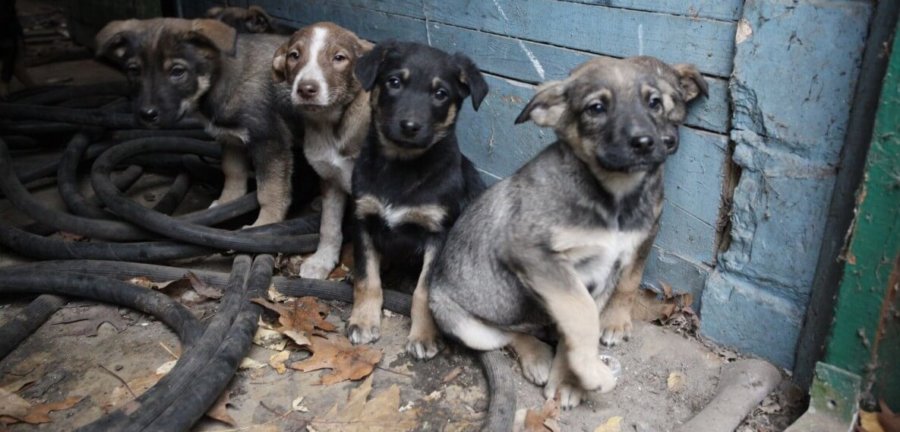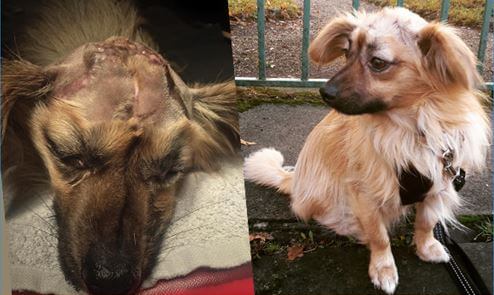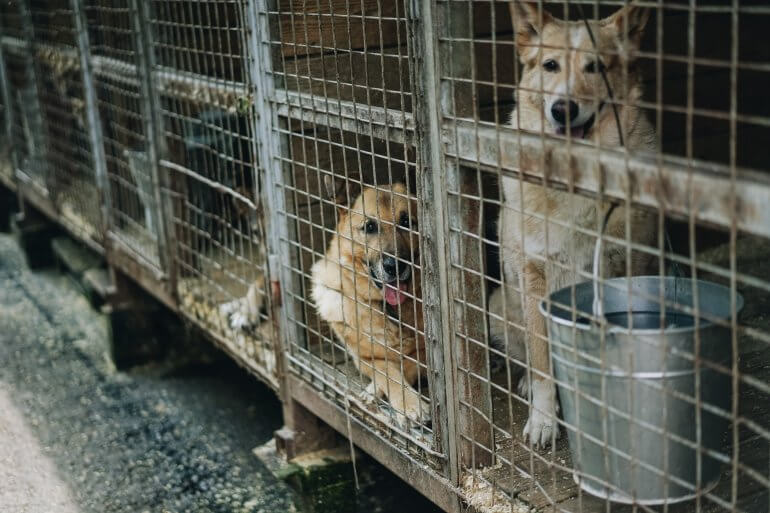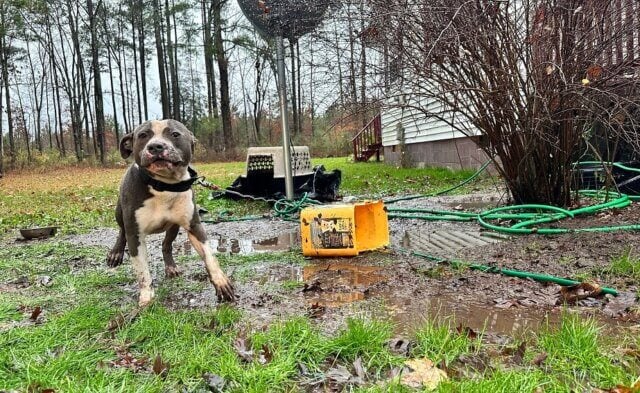Polly’s life had always been challenging. She spent her first three years scavenging for food on Romania’s streets and enduring painful injuries inflicted by other hungry dogs competing for scraps. A few months ago, a tumor began growing on her head, making a difficult life even more dangerous. One day, someone caught her with a wire snare and dragged her off to a grim building where animals are often killed. Thankfully, some kind people rescued Polly and took her to Germany, where veterinarians removed her tumor and spayed her so that more dogs would not be born into homelessness. Polly’s luck changed, but hundreds of thousands of dogs in Romania continue to struggle for survival.
Romania has what’s likely the largest population of homeless animals in Europe, with more than 600,000 dogs and thousands of cats who eke out an existence on its streets. Mange and other serious, painful skin conditions commonly plague them, and animals struggle to find enough to eat. Many homeless animals endure slow, painful deaths or are legally snatched off the streets and taken to overburdened “shelters” or “killing stations,” which they rarely leave alive. Some facilities have kind staff members but lack the resources to help animals, and others just hold animals briefly before killing them. Most of these facilities lack sufficient food and warmth, and since many of the dogs are not separated and are not spayed or neutered, they create another generation of homeless pups.
The most important thing we can do to help stop this overpopulation crisis is to spay and neuter companion animals. Without spaying, one female cat and her offspring can produce 370,000 kittens in just seven years. Sterilizing one female dog can prevent 67,000 births in six years.
With the support of PETA’s Global Compassion Fund, PETA Germany and local Romanian partner Eduxanima are dramatically reducing dogs’ suffering by operating a mobile spay/neuter clinic that’s sterilizing and registering thousands of animals in Romania each year. The groups are focusing on rural, impoverished areas, and they give dogs whose owners make them live outdoors long tethers to replace restrictive, heavy chains and new doghouses to make their lives more comfortable. Other veterinary treatment is administered free of charge, and dogs with guardians are spayed or neutered to prevent litters of unwanted puppies.
To help introduce policies that will end Romania’s homeless-animal crisis, PETA Germany works with public officials and politicians and holds animal-care workshops at schools to encourage the country’s next generation to have compassion for all living beings and create a brighter future for animal rights.
PETA Germany and Eduxanima are going to great lengths to help Romania’s homeless animals, just as PETA U.S.’ Community Animal Project (CAP) does for animals in Virginia and North Carolina. CAP offers spay/neuter surgeries for those who would otherwise reproduce, and its fieldworkers don’t hesitate to crawl through sewers, climb trees, or dodge speeding cars to rescue imperiled animals.
You can help us do more to end the homeless-animal crisis in Romania and elsewhere by contributing to PETA’s Global Compassion Fund today! This unique fund supports animal activism in nearly every corner of the world through our network of committed local groups that change animals’ lives and raise awareness of animal rights in areas where it’s needed most.








